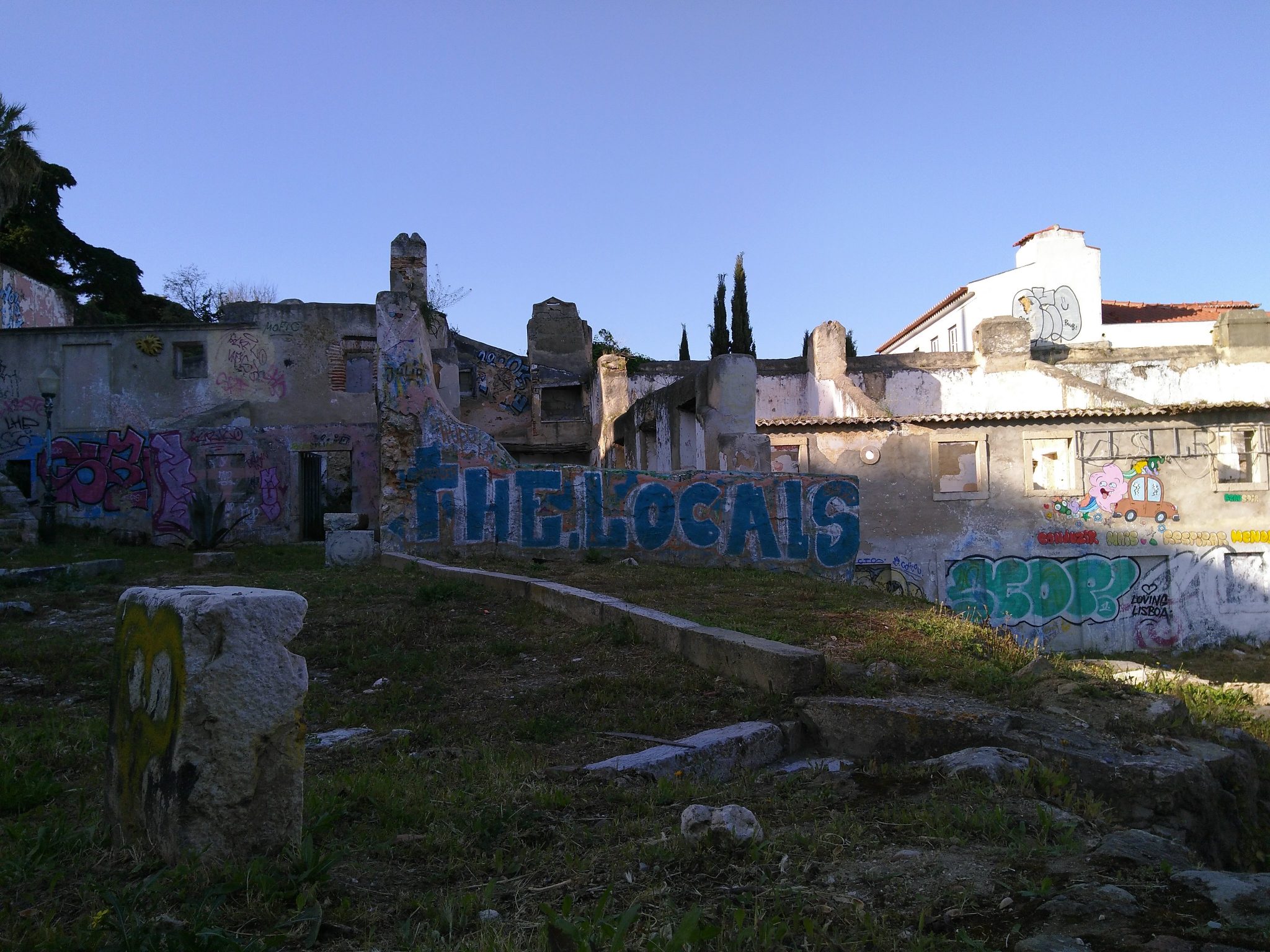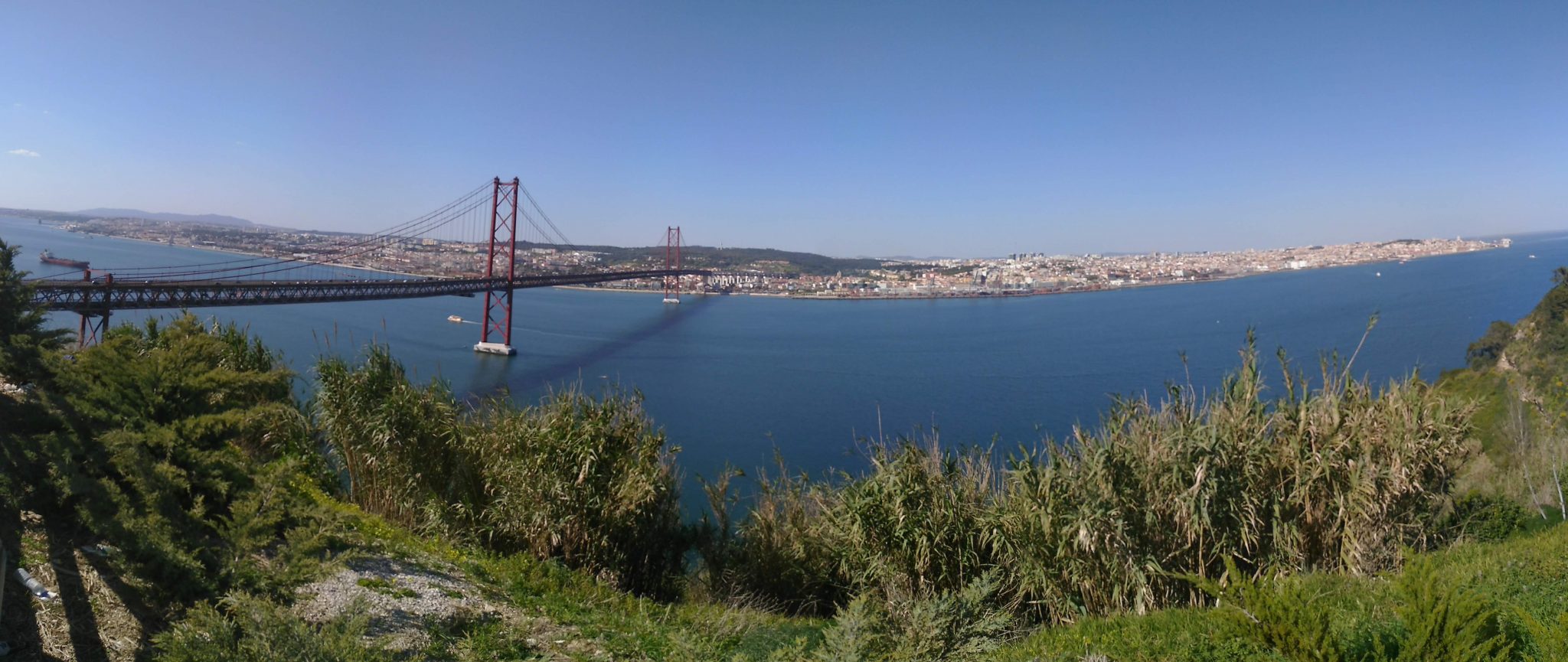Date: 28/06/2019
Bethan Prosser is an SCDTP-funded student in Applied Social Sciences. Her PhD investigates the social and cultural aspects of seaside gentrification on the UK’s south coast. Bethan has a background of working in the community voluntary sector and supporting community-university research partnerships at the University of Brighton. Her research interests include issues of urban injustice and social activism, driven in particular by her experiences of supporting people experiencing homelessness.
A trip to Lisbon – reflections on dissemination & design in the research cycle
Thanks to the SCDTP training fund, this year I have been able to take up opportunities to disseminate findings from my Masters research. Revisiting my findings for conference presentations and refining my writing for publication have been useful endeavours to run alongside the development of my PhD literature review and research design. Here I reflect on my most recent trip to the University of Lisbon, which highlights aspects of the research cycle in action, in particular, how the dissemination activities of previous research can feed into current research design activities.
My Master’s thesis investigated voluntary outdoor projects that provide care to people living on the streets in Brighton & Hove, namely soup kitchens, redistribution networks and grassroots  outreach. This experience has overlapped and stimulated three areas of my PhD research, which looks at seaside gentrification on the UK south coast.
outreach. This experience has overlapped and stimulated three areas of my PhD research, which looks at seaside gentrification on the UK south coast.
- Theoretically, my project delved into issues of urban injustice and theories of urban space, which are intrinsic to understanding gentrification.
- Methodologically, I drew from the new mobilities paradigm, which asserts that mobility and movement is central to being and led to a proliferation of mobile methods. I utilised participatory walking interviews, which I am continuing to apply in my PhD design through individual and group mobile methods.
- Empirically, the research focused on the case of Brighton & Hove, which is one of the PhD fieldwork sites, therefore contributing to my contextual study.
The process of preparing conference and journal papers has therefore enabled critical reflection on my methodology and fieldwork experience that has contributed significantly to the development of my current PhD methodology.
SCDTP funding is supporting me to present on this research at two conferences. Most recently, I presented at the Mobile Labour Symposium at the University of Lisbon, organised by the Colour of Labour in collaboration with the EASA network Anthropomob. The conference brought academics and doctoral students from around the world together to work on a special journal issue of Mobilities. I presented on the intersections of mobilities, labour and care that constitute voluntary outdoor relief, which is an under-researched area. My paper argues that looking at the micro-geographies of this transitory type of voluntary work, allows us to better understand the realms of mobile work and care. This draws on Smith & Hall’s typology on work and movement and the geographies of care framework, caringscapes by Bowlby.
Alongside the positive feedback I received for developing my paper, the symposium also stimulated my thinking on my PhD topic, gentrification, and mobilities. Gentrification can been considered an act of migration taking a social definition that focuses on the process of resettlement and displacement of one group of residents with another of higher social status.
Displacement has become a defining feature of gentrification, which in its simplest form can be viewed as forced mobility. However drawing on the mobilities paradigm, which argues that mobility  cannot be understood without immobility, a broader understanding of displacement can be developed. For example, indirect forms can include people getting stuck (forced immobility) when displacement pressures reduce existing residents’ ability to move.
cannot be understood without immobility, a broader understanding of displacement can be developed. For example, indirect forms can include people getting stuck (forced immobility) when displacement pressures reduce existing residents’ ability to move.
A particularly relevant part of the symposium discussion focused on the different discourses associated with ‘being a migrant’ and ‘being mobile’, where the latter is considered more favourable. This feeds into gentrification debates on the role of the ‘cosmopolitan mobile elites’ or ‘transnational lifestyle migrants’ in driving gentrification processes. Thus I have returned from Lisbon armed with new avenues to explore in my literature review.
Through visiting the University of Lisbon, I was also able to meet with a gentrification scholar, Agustin Cocola Gant, whose work on tourism and gentrification resounds with my conceptual explorations of ‘seaside gentrification’. Meeting in person allowed us to take a walk around a rapidly gentrifying neighbourhood of Lisbon, Intendente Square (Mouraria).
Whilst aptly employing mobile methods, my academic tour guide was able to show me the renovation of the area and describe the particular impacts of short-term lets, which is a newly identified aspect of contemporary forms of gentrification. I was able to connect and learn more about the Smart Tour project Agustin is leading on, which looks at tourism, holiday rentals and rehabilitation.
Consequently overall, the dissemination activities connected with this SCDTP funded trip to the University of Lisbon, have contributed productively to the ongoing design activities of my PhD research. I have new areas to explore and new connections to develop as I progress my research into seaside gentrification over the next 2 years. Thanks to the SCDTP for funding this trip and my supervisor, Lesley Murray for suggesting and supporting this opportunity.